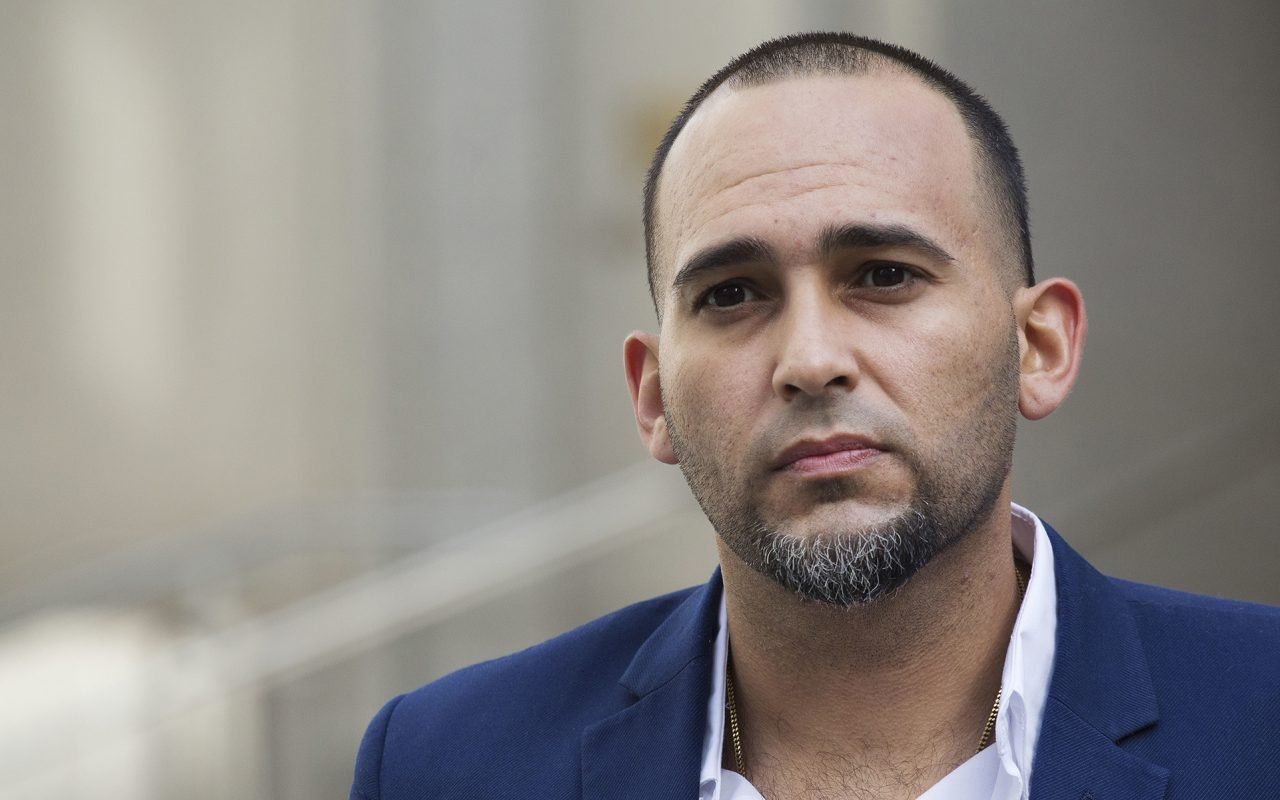Iraq war veteran Jose Belen, who takes marijuana to treat post-traumatic stress disorder, stands in front of federal court in New York. Belen is one of five plaintiffs challenging federal marijuana laws a lawsuit that claims classifying marijuana as a dangerous drug is irrational and unconstitutional. (Mark Lennihan/AP)
Last week, in a lawsuit that could put an end to federal cannabis prohibition, a federal judge in New York acknowledged the healing potential of medical marijuana. “It’s saved a life,” he said, referring to a Colorado girl with epilepsy. “She has no more epileptic seizures.”
The judge then turned to lawyers for the federal government, who have argued that cannabis is a dangerous drug with no accepted medical benefit. “If there is an accepted medical use,” he told them, “your argument doesn’t hold.”
The case of Washington v. Sessions has generated great interest. Five plaintiffs, including former NFL player Marvin Washington; 12-year-old Colorado medical refugee Alexis Bortell; youngster Jagger Cotte; US military veteran Jose Belen; and the Cannabis Cultural Association, a nonprofit that helps people of color benefit from cannabis in states where it’s legal, have challenged the constitutionality of the classification of marijuana under the federal Controlled Substances Act. The case, filed in 2017, finally received its first hearing in federal court last week, when US District Court Judge Alvin Hellerstein heard the federal government argue for the case’s dismissal.
Leafly sat down with David C. Holland, a member of the legal team representing plaintiffs in the suit, following the Feb. 14 hearing. Holland is a litigator in New York City and the executive and legal director of Empire State NORML. He’s former counsel to High Times Magazine and a member of the New York Cannabis Bar Association.
Holland walked us through what’s at stake in the lawsuit and the significance of the government’s recent effort to dismiss it.




